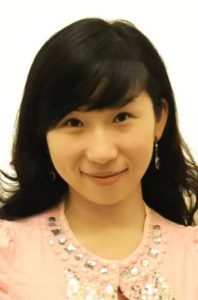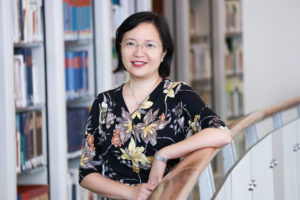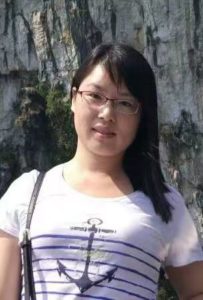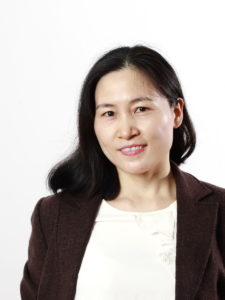IFLA Local History and Genealogy Section Webinar: Providing New Insights in the Fields of Genealogy and Local History in Asia
The IFLA Local History and Genealogy Section cordially invite you to a webinar on 15 March 2023, 10:00-11:30 (China time) about new insights in the field of genealogy in China, Singapore and Japan. Please register at the link above.
Speakers

“The Past, Present, and Future of Chinese Genealogy”
Yali Wang, Jiangsu Qingtime Sci&Tech Co., Ltd.
wangyl@qingtime.cn
Genealogy is one of the three pillars of Chinese historiography, along with the country histories and the local history . Traditional genealogies contain a great deal of information: demographic, social, ethnic, folklore, historical, economic, educational, and other first-hand materials. What we call genealogy nowadays are genealogies in books, but earlier genealogies could have other carriers, writing family deeds on cloth, stone tablets, and bronze vessels, all of which could be genealogies. In this sense, there was already a primitive form of genealogy in the Shang and Zhou dynasties. After the Ming and Qing dynasties, the folk culture of genealogy became even stronger, with villages, families and households repairing their genealogies, which has become a necessary heirloom for every Chinese family.
Nowadays, with the development of the Internet and the rise of electronic genealogy, some families try to make electronic genealogy based on traditional genealogy methods, storing family genealogy data in the cloud to facilitate quicker genealogy renewal. Based on the current genealogy model, we explore a way to encourage and energize each family to cultivate genealogy, combine diversified product lines to activate the link between the characters in the genealogy and reality, motivate each person to record the story, and establish their own digital museum, so that the future genealogy can be displayed in a richer form, love and stories can be passed down from generation to generation.
“The Collection, Arrangement and Development of Genealogy in Shanghai Library”
Chenzhi HE, Shanghai Library
czhe@libnet.sh.cn
Qianqian LIU, Shanghai Library
qqliu@libnet.sh.cn
Genealogy is an important special collection resource of the Shanghai Library, and it is also one of the resources most interesting to the public. How to use these precious resources to meet the needs of the public for root-seeking, display genealogy resources, and spread genealogy culture are issues that we have been thinking about for a long time.
Since 2016, the Shanghai Library has used digital humanities methods and linked data technology to reorganize, enrich and format the content of the Chinese Genealogy Catalog and the genealogy collection of Shanghai Library. We build a Chinese genealogy knowledge service platform, which not only provides basic functions such as retrieval and full-text browsing, but also combines visualization technologies to provide various visual displays such as space-temporal browsing, celebrity family lineages and immigration maps. In addition, the platform also supports crowdsourcing functions such as online reading, online editing and uploading genealogies. It is hoped that the resources of the platform can be improved and enriched with the help of the public.
In this presentation, we will introduce the work done by the Shanghai Library in the development and utilization of genealogy resources, display our Chinese genealogy knowledge service platform, and show some exhibition cases based on genealogy resources.
“New Service Practice of Local Historical Culture Resource on the Public Culture Cloud Platforms”
Jingzhu Wei
Professor, School of Information Management, Sun Yat-sen University
weijzhu@mail.sysu.edu.cn
This presentation will introduce public culture cloud platforms in China and the new practice such platforms provide for the display of local historical resources and related services. As new-born digital platform for cultural services in China, public culture cloud platforms have been built by the joint effort of central and local government agencies and cultural institutions under the guidance of China’s culture digitalization strategy. Applying new forms of ICT, these platforms provide one-stop menu-styled, order-oriented and reservation-oriented digital services while trying to narrow the distance between public culture demand and supply. Thanks to these platforms, public digital cultural services in China has been improved in richness, convenience and accessibility with the coverage and efficiency of services stepping onto a higher level.
After years of development, the aggregation of local historical resources is becoming prominent on the platforms. Not only are there thematic databases of local historical resources, but the platforms have realized the online and offline service integration. For example, Foshan Cultural Cloud Platform has included a variety of historical activities among which Historical Intangible Heritage subsection includes dancing lion inheritance, lacquer and ceramic art experience, Cantonese opera, woodcut exhibition about new year festivals, etc. All these activities are closely related to Foshan local history and culture, and have provided the public with good chances to understand Foshan local history.
This presentation will first introduce the development of China’s public culture cloud platforms with special highlights on its digital technology application and cultural service integration. Next, the presentation will show some local historical and cultural resources as well as the cultural service patterns on the platforms, before finally providing suggestions for future development.
“Genealogy tracing through library and archive resources”
Ms ANG Seow Leng
Senior Librarian, Singapore and Southeast Asia Collections
National Library, Singapore
National Library Board, Singapore
ANG_Seow_Leng@nlb.gov.sg
The opening of Singapore as a British free port in 1819 transformed it into a thriving city port, attracting immigrants and merchants from all over the world. Majority of Singapore’s population were made up of immigrants primarily from Asia. Chinese formed the majority, followed by the Malays, Indians and Eurasians. While they lived in Singapore, some also returned to their former homeland for retirement or resettled elsewhere. Their descendants often visit the library and archives to discover more about the lives of their ancestors. Tracing family history and discovering the roots offers a link to the past through history, culture and lifestyle. This presentation will feature genealogy tracing through the National Library, Singapore and National Archives of Singapore resources, and also how biographical data visualisation from the Singapore Biographical Database would help uncover relations.
Moderator and Speaker

“Distinctive Digital Collections and Open Data Related to Genealogy in Japan”
Takashi Nagatsuka
Secretary, IFLA Local History and Genealogy Section
Professor Emeritus, Tsurumi University
nagatsuka-t@tsurumi-u.ac.jp
After an overview of the overall structure and characteristics of digital collections and open data related to Genealogy in Japan, this presentation will introduce aggregator services by region or by type of information for exploring these contents and data. In addition, portal sites for digital collections and open data at the national level will be introduced, and the relationship among the sites of these individual organizations, the aggregator site, and the national portal site will be explored. Finally, it presents distinctive digital contents related to Genealogy, for example, family genealogical collections, family crests, and family names and surnames.


